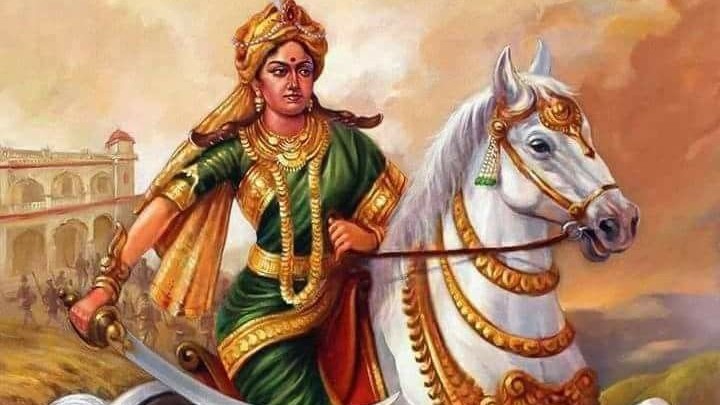Rani Velu Nachiyar is an 18th-century warrior from the Sivagangai estate in present-day Tamil Nadu. She is remembered as a symbol of courage and resistance against the colonial rule. January 3 is observed as the birth anniversary of the fearless warrior, which interestingly also marks the birthday of social reformer Savitribai Phule.
Taking to X (formerly Twitter), Prime Minister Narendra Modi paid tribute to Rani Velu Nachiyar on her birthday. He wrote, “Remembering the courageous Rani Velu Nachiyar on her birth anniversary! She waged a heroic fight against colonial rule, showing unparalleled valour and strategic brilliance. She inspired generations to stand against oppression and fight for freedom. Her role in furthering women’s empowerment is also widely appreciated.”
Who was Rani Velu Nachiyar?
According to government archives, Rani Velu Nachiyar was raised as the royal heir of the Sivagangai estate, reflecting her prominent line in the Sethupathi dynasty. Reportedly, her life took a tragic turn during the Kalaiyar Koil War when her husband, Muthu Vaduganatha Thevar, was killed by the British forces, which was led by the son of the Nawab of Arcot. Following this devastating event, Velu Nachiyar and her young daughter were forced to exit their homeland.
After fleeing, Rani Velu Nachiyar took refuge in Dindigul, where she spent eight years under the protection of Gopal Naicker. While there, she met Haider Ali, the Sultan of Mysore, who was deeply impressed by her intellect and fluency in Urdu. The government archives note that her linguistic skills and strategic acumen earned the Sultan’s favour and support.
With the combined forces of Gopal Naicker and Haider Ali, Velu Nachiyar embarked on her mission to reclaim her kingdom in 1780. This movement is historically significant as it introduced India to “the first-ever instance of suicide bombing,” a strategy reportedly conceived by Velu Nachiyar and her trusted military commander, Kuyuili.
The archives recount how Velu Nachiyar and her forces located the armoury chambers within a British-controlled fort. On Vijayadashmi, Kuyuili led a team of women to infiltrate the fort. Following her command, Kuyuili had ghee poured over herself, set herself on fire, and walked into the armoury chamber, successfully destroying the British weapons in a selfless act of sacrifice.
This extraordinary act paved the way for Velu Nachiyar’s forces to launch an all-out attack, ultimately regaining control of her kingdom. She successfully resisted the British and the Nawab of Arcot, earning the title “Veeramangai,” or “The Brave One.” In recognition of her legacy, a commemorative postal stamp has been issued in her honour, ensuring her story continues to inspire future generations.
